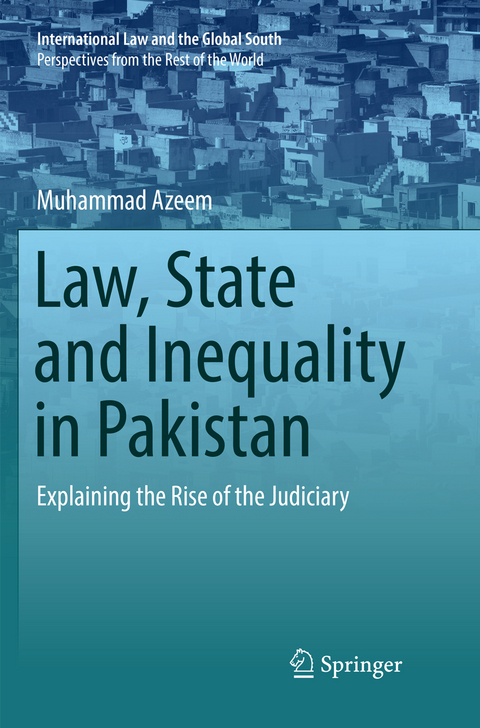
Law, State and Inequality in Pakistan
Springer Verlag, Singapore
978-981-10-9982-3 (ISBN)
Muhammad Azeem is assistant professor at Shaikh Ahmad Hassan School of Law, Lahore University of Management Sciences (LUMS), Lahore, Pakistan, where he teaches ‘Labour Law,’ ‘Critical Legal Theory,’ as well as ‘International Law from the South: A Critical Perspective to Decolonize.’ He has published multiple books on political economy in Urdu and was a political activist in subaltern sectors, particularly bonded labour, before becoming more theoretically engaged and writing about judicial activism in his Master of Laws (LLM) and PhD at the Osgoode Hall Law School, York University, Toronto.
Part One: Law under modernization: foundational discourse.- Chapter 1 -Critique of institutionalist-functionalist focus of the good governance paradigm.- Chapter 2 - Law under capitalist modernization (1947-1960’s).- Chapter 3 - Law under socialist modernization (1970’s-1980’s).- Part Two: Law under neo-liberal development: Rights for democratic deficit.- Chapter 4- The rise of the judiciary in a ‘weakening state’ (1990’s).- Chapter 5 - Law under ‘good governance’ (2000’s).- Chapter 6 - Conclusion and theoretical implications.
| Erscheinungsdatum | 03.10.2018 |
|---|---|
| Reihe/Serie | International Law and the Global South |
| Zusatzinfo | XVIII, 278 p. |
| Verlagsort | Singapore |
| Sprache | englisch |
| Maße | 155 x 235 mm |
| Themenwelt | Recht / Steuern ► EU / Internationales Recht |
| Sozialwissenschaften ► Politik / Verwaltung ► Europäische / Internationale Politik | |
| Wirtschaft ► Volkswirtschaftslehre ► Wirtschaftspolitik | |
| ISBN-10 | 981-10-9982-0 / 9811099820 |
| ISBN-13 | 978-981-10-9982-3 / 9789811099823 |
| Zustand | Neuware |
| Haben Sie eine Frage zum Produkt? |
aus dem Bereich


